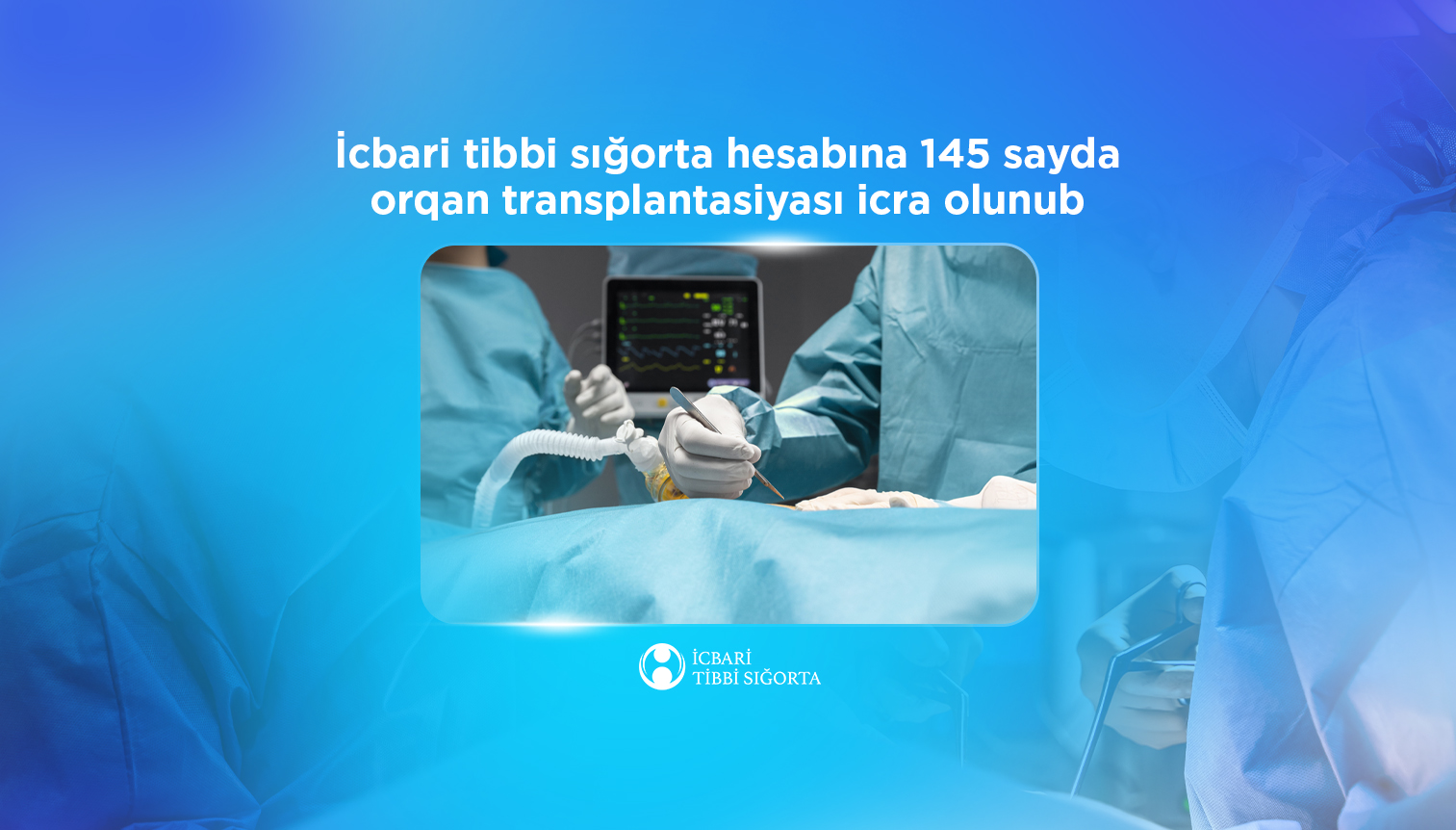 1542
1542 145 transplant operations performed under mandatory health insurance
29.08.2024, 09:59
Since August of last year, organ transplantation has been partially covered by the Benefit Package under mandatory health insurance. From August 2023 to August of this year, 145 transplant operations were performed under mandatory health insurance, including 71 liver transplants, 71 kidney transplants, and 3 bone marrow transplants at contracted medical facilities and the National Hematology and Transfusion Center under the Ministry of Health.
Organ transplantation involves the replacement of missing or dysfunctional organs with those obtained from a donor, performed surgically to save life and restore health when all other evidence-based treatments prove ineffective.
Liver transplantation is recommended for conditions such as cirrhosis, certain congenital and genetic disorders, and liver cancer. Kidney transplantation is the preferred treatment for patients with end-stage renal failure, while bone marrow transplantation replaces damaged or destroyed bone marrow with healthy cells.
Transplantation surgery involves both a donor, who may be a living person or cadaver, and a recipient, who requires the transplant for treatment. This surgery is performed solely on the basis of medical necessity. Upon diagnosis of organ failure, a patient may contact the "Coordinating Center for Organ Donation and Transplantation" under the Ministry of Health to receive preliminary information and begin the process. After submitting necessary documents, the Center refers the patient to a designated medical facility that manages the collection, preparation, storage, and transport of donor organs. Patients are free to choose their preferred medical facility and doctor for the procedure.
At the medical facility, the patient undergoes examinations by a team of specialists including a surgeon, cardiologist, psychologist, nephrologist, hematologist, anesthesiologist, and others. Based on these evaluations, a decision is made, and the surgery is scheduled on a priority basis according to the severity of the condition.
To ensure donor safety, only one of a pair of organs or part of a single organ is taken. Before surgery, both donor and recipient undergo comprehensive examinations and, if no contraindications are found, are operated on the same day. Post-operatively, both are treated in an inpatient setting before being discharged for outpatient follow-up under a doctor’s supervision.
The mandatory health insurance coverage includes diagnostic tests, resuscitation, hospitalization, medicines, surgical supplies, laboratory and instrumental examinations, blood or blood components, and nutrition for both donor and recipient. Additionally, preparation and surgical costs for a living donor are covered.
For your information, the annual transplant limit under mandatory health insurance is set at 100 for liver transplants, 150 for kidney transplants, and 20 for bone marrow transplants.
Last News
Allergiyaların diaqnostika və stasionar müalicəsi icbari tibbi sığorta hesabına göstərilir

Mərkəzi Neftçilər Xəxtəxanasına müasir tibbi avadanlıqlar ianə edilib

Ağciyərlərə yığılmış mayenin çəkilməsi məqsədilə 5643 prosedur icra olunub

Pirallahı Tibb Mərkəzinə media-tur təşkil olunub

“Yanıq yaralarının müalicəsi” mövzusunda təlimə start verilib

MRT və KT müayinələri üçün yeni ödəmə qaydası tətbiq olunacaq

Zaur Əliyev Ağcabədi rayonunda vətəndaşları qəbul edib

İcbari tibbi sığorta ilə 50 mindən artıq angioqrafiya müayinəsi aparılıb

Türkiyənin Sosial Müdafiə Qurumunun nümayəndə heyəti Azərbaycana səfər edib

Qadınlarda yumurtalıq xərçəngi riskini azaldan əməliyyat icbari tibbi sığorta təminatına daxildir


 View all news
View all news 